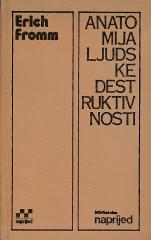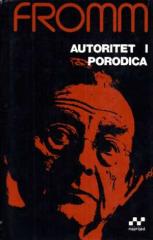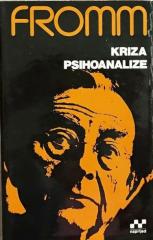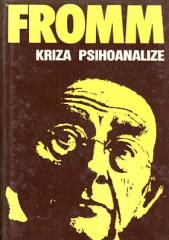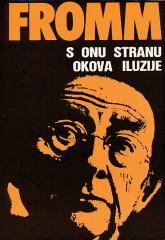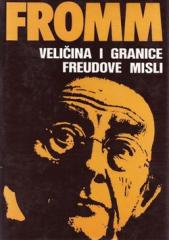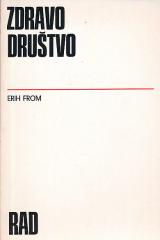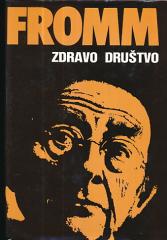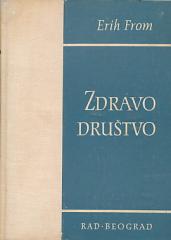Erich Fromm
Erih From (1900–1980) je bio nemačko-američki socijalni psiholog, psihoanalitičar, filozof i humanistički mislilac. Rođen je u Frankfurtu u jevrejskoj porodici, a studirao je sociologiju, psihologiju i filozofiju u Hajdelbergu. Bio je povezan sa Frankfurtskom školom kritičke teorije i intenzivno se bavio povezivanjem psihoanalize sa društvenom teorijom i humanističkom etikom.
From je verovao da se ljudska psihologija ne može razumeti bez konteksta društva u kome čovek živi. Njegovo najpoznatije delo, Bekstvo od slobode (1941), analizira kako su se pojedinci u modernom društvu okrenuli autoritarnim ideologijama da bi izbegli teret lične slobode. U svojim delima Umetnost ljubavi, Zdravo društvo i Imati ili biti, promoviše ideje autentične ljubavi, individualne zrelosti i etičkog humanizma.
Za Froma ideal je bio društveni preobražaj koji omogućava razvoj čoveka kao slobodnog, kreativnog i odgovornog bića. Bio je aktivan i u političkom životu, zalažući se za mir, razboritost i demokratski socijalizam. Nakon dolaska nacista na vlast emigrirao je u SAD, gde je nastavio akademsku i terapeutsku karijeru.
Umro je 1980. u Švajcarskoj, ostavivši dubok trag u humanističkoj psihologiji i socijalnoj filozofiji.
Naslovi u ponudi
Anatomija ljudske destruktivnosti
U svetu koji stalno beleži porast nasilja u njegovim različitim oblicima, Erih From ovaj problem tretira na izuzetno pronicljiv način u jednoj od svojih najznačajnijih knjiga.
Autoritet i porodica
U "Autoritetu i porodici" Erih From analizira transformaciju autoriteta i porodice u savremenom društvu. Predgovor je napisao Gvozden Flego, a knjiga sadrži i studiju „Revolucionarni karakter”.
Kriza psihoanalize - Analitička socijalna psihologija i društvena teorija
From se razvijao kao kritičar savremenog društva pod uticajem Marksa, Frojda i frankfurtskog kruga. Isticao se kao originalan kritički tumač Frojdovih koncepcija, koje su njegova druga osnovna inspiracija.
Kriza psihoanalize - Analitička socijalna psihologija i društvena teorija
U knjizi From iznosi snažnu kritiku savremene psihoanalize. On smatra da se psihoanaliza udaljila od Frojdove početne revolucionarne vizije i pretvorila se u tehnički, često sterilan sistem koji ignoriše dublje ljudske i društvene dimenzije.
S onu stranu okova iluzije: Moj susret s Marxom i Freudom
U autobiografsko-filozofskom delu „Izvan lanaca iluzije” Erih From prikazuje sopstveni intelektualni razvoj kroz susret sa idejama Karla Marksa i Sigmunda Frojda.
Veličina i granice Freudove misli
Zdravo društvo
Erih From istražuje šta čini društvo psihološki zdravim, a šta ga čini bolesnim. Knjiga predstavlja krunsko dostignuće Fromove socijalne i političke filozofije, u kojoj se on zalaže za takozvani humani, demokratski socijalizam.
Zdravo društvo
U knjizi „Zdravo društvo“ Erih From istražuje šta društvo čini psihološki zdravim, a šta ga čini bolesnim. Knjiga predstavlja krunu Fromove društvene i političke filozofije u kojoj on favorizuje tzv. humani, demokratski socijalizam.
Zdravo društvo
U knjizi Zdravo društvo Fromm je pokušao pokazati da život u demokraciji XX. stoljeća predstavlja drugu vrstu bijega od slobode. Analiza baš tog bijega, u kojoj je otuđenje centralni pojam, čini veliki dio ove knjige.
